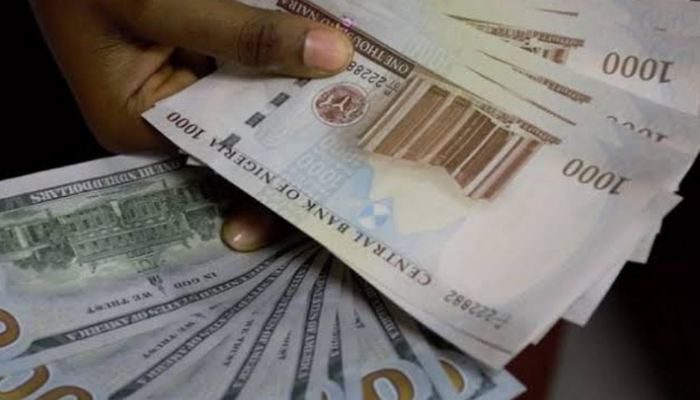The Nigerian naira continued its downward trajectory on Tuesday, weakening for the third consecutive day against the U.S. dollar at the official foreign exchange market. According to data from the FMDQ Securities Exchange, which oversees official FX trading, the naira closed at N1,473.29 per dollar, down from N1,468.99 recorded on Monday.The local currency’s continued depreciation has been attributed to increased dollar demand from importers, manufacturers, and investors seeking to meet foreign obligations. Market analysts say the rising pressure in the official market reflects the combination of persistent foreign exchange scarcity and speculative activities by traders hedging against further depreciation.
At the parallel market, the naira traded slightly weaker, averaging around N1,495 per dollar, according to operators in Lagos and Abuja. This represents a modest gap between the official and parallel market rates, though both have shown signs of volatility over the past week.

Forex dealers reported that demand pressure has intensified since the start of the month, as businesses resumed import activities following the end of the third quarter. The Central Bank of Nigeria (CBN) has been making efforts to stabilize the market through interventions aimed at boosting liquidity and curbing speculative trading.
Traders also noted that some authorized dealers have been facing delays in accessing foreign currency allocations, which has led to a temporary build-up of unmet dollar demands in the market. “There’s a lot of pressure at the moment, particularly from the manufacturing and aviation sectors. Many are rushing to fulfill outstanding payment obligations before the end of October,” one trader said.
The CBN, in recent weeks, has reiterated its commitment to maintaining exchange rate stability through reforms and improved market transparency. It has also emphasized the importance of attracting foreign portfolio inflows and encouraging exporters to repatriate their proceeds through official channels.
However, analysts believe that while reforms have improved confidence in the foreign exchange framework, short-term volatility will persist until supply conditions improve significantly. The apex bank’s new FX guidelines, which mandate transparent reporting and discourage round-tripping, are seen as positive steps but require time to yield tangible results.
A report by Financial Derivatives Company Limited noted that the naira’s current weakness is being driven largely by external pressures such as declining oil receipts and slow foreign investment inflows. It added that Nigeria’s dollar supply remains constrained despite higher crude prices, due to lower-than-expected production levels and underperforming non-oil export earnings.
The report further suggested that exchange rate stabilization will depend heavily on the success of ongoing fiscal and monetary reforms, including the implementation of the new foreign exchange management framework and enhanced collaboration with key stakeholders.
Meanwhile, the nation’s foreign reserves, which stood at about $33.7 billion, have remained relatively stable in recent weeks, offering some support for the currency. Nonetheless, analysts warn that sustained pressure on the reserves due to import financing and debt service obligations could weaken the CBN’s intervention capacity in the coming months.
Commenting on the development, a senior economist at Afrinvest Consulting, Mr. Tunde Oyewole, said, “The naira’s depreciation this week is not unexpected given the seasonal demand pressures and the limited FX inflows. However, if the CBN maintains its current policy direction and continues to improve transparency, we expect the naira to stabilize around the current level in the near term.”
He added that the inflow of remittances and renewed foreign investor interest in government securities could provide temporary relief, though the long-term solution lies in boosting local production and exports.
The CBN has continued to encourage exporters to bring back their proceeds through the official window, promising faster processing and more favorable rates. Similarly, the government has stepped up efforts to attract foreign direct investments by simplifying regulatory procedures and promoting Nigeria’s investment potential in key sectors such as energy, technology, and infrastructure.
Despite the short-term dip, traders remain cautiously optimistic that the naira could regain some strength in the coming weeks, especially if the expected inflows from oil sales and multilateral loans materialize. Market participants, however, emphasize that maintaining policy consistency and market confidence will be crucial to reversing the downward trend.
For now, the naira’s fall to N1,473.29 per dollar marks a continuation of the volatility seen since the start of October, underscoring the ongoing challenges in achieving exchange rate stability despite ongoing reforms in the foreign exchange market.
Support InfoStride News' Credible Journalism: Only credible journalism can guarantee a fair, accountable and transparent society, including democracy and government. It involves a lot of efforts and money. We need your support. Click here to Donate
